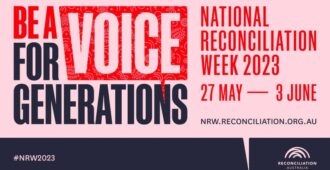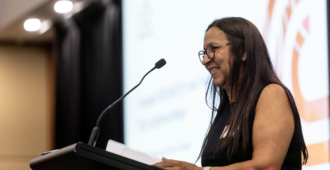

A new Australian Prevention Partnership Centre research project is set to shed light on the positive influences that protect Aboriginal teenagers from taking up smoking, helping to fill an important research gap in the area of addiction in young Aboriginal people.
PhD candidate Christina Heris said understanding factors that protect against smoking uptake, such as positive relationships, not smoking in the home, mental health and cultural identity, could lead to more opportunities for prevention in Aboriginal communities.
She said a lot of research focused on why young people experiment with cigarettes and take up smoking.
“We need to understand those risk factors, but there is another side to this story because most teenagers don’t smoke,” Ms Heris said.
“I’m going to flip it and tell that positive story. I want to look at the potential positive protective factors against smoking – what is the lived experience of a young Aboriginal person who actively chooses each day not to smoke, even in a high prevalence environment?”
Ms Heris is receiving a Prevention Centre scholarship to complete her PhD through Baker Heart & Diabetes Institute and Monash University. It forms part of a wider Prevention Centre project on a comprehensive approach to Aboriginal and Torres Strait Islander tobacco control.
Drawing on cohort studies
She will draw on studies covering tobacco use in young Aboriginal people, including the SEARCH partnership study, the Longitudinal Study of Indigenous Children and possibly the Australian Secondary Students’ Alcohol and Drug Survey, to look at the social and environmental factors associated with smoking.
SEARCH, the Study of Environment on Aboriginal Resilience and Child Health, is Australia’s largest long-term study of the health and wellbeing of urban Aboriginal children and is an active partnership between researchers from a number of institutions, the Sax Institute, the Aboriginal Health & Medical Research Council and four Aboriginal Community Controlled Health Services.
Ms Heris’ project will also involve qualitative research to find the positive story behind the data and determine how positive experiences and attitudes of Aboriginal non-smoking teenagers might be used to develop health communications targeting adolescents.
“In the end this research will be useful both to community organisations running their own local health promotion programs but also to policy makers funding tobacco control grants and designing campaigns,” she said.
The Australian Prevention Partnership Centre is led by the Sax Institute and is a collaboration of more than 150 individuals across 28 organisations from the university, government, non-government and private sectors. It is funded by the National Health and Medical Research Council, Australian Government Department of Health, NSW Ministry of Health, ACT Health and the HCF Research Foundation.
Find out more
- Learn more about the research project: Learning from the positive stories of Aboriginal teenagers who don’t smoke
- Read SEARCH researcher Simone Sherrif’s article: Searching for the answers on urban Aboriginal Health




